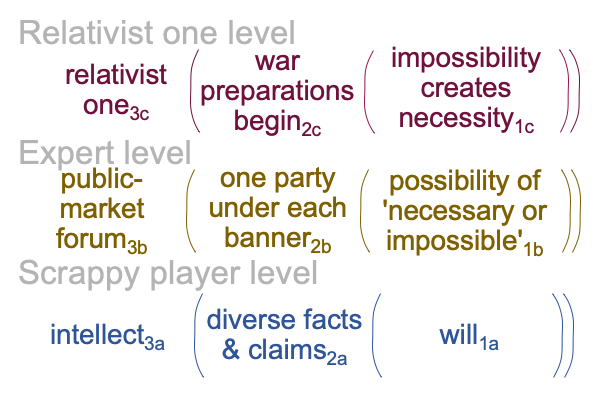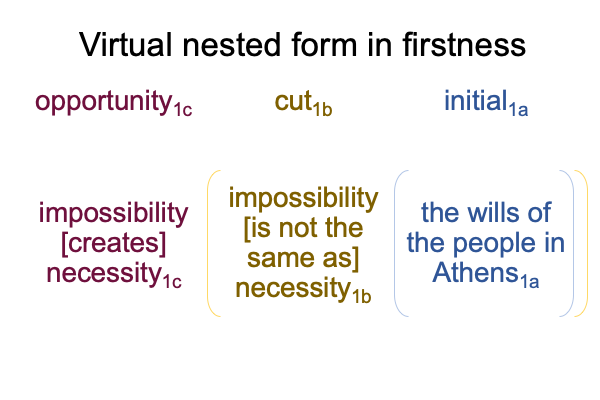0050 Here is the the post-truth interscope for the ongoing example.

Diverse claims about Syracuse2a are virtually situated by one party under the banner saying that war is necessary2b and another party under the banner saying that war is not possible2b in the normal context of a public forum3b operating on the potential of ‘situating rumors about what to do about Syracuse’1b.
Does the relativist one3c know what will happen after Athens gathers a fleet and sails to Syracuse? Or, is the relativist one3c clever enough to cast a veil of ignorance1b over a cauldron of irreconcilable claims2a thus constituting a post-truth game2b that results in a particular organized endeavor2c? See page 21 of Fuller’s text for that question.
0051 Remember, for the post-truth condition, what matters is not whether something is true or false.
What matters is how something is decided.
The first statement concerns the intellect. The second statement concerns the will.
0052 This reminder suggests a flaw in a preceding figure.
The starting point for a virtual nested form in the realm of firstness (the column in the realm of possibility) is not the various opinions of the people in Athens2a, it is their will1a.
Here, the virtual normal context is on the left and the virtual potential is on the right.

0053 The normal context of a resolution of contradictions between the parties of impossibility and necessity1c virtually brings the actuality of the formalization of impossibility in contrast to necessity1b into relation with the possibility of the wills of the people of Athens in regards to Syracuse1a.
Success2c takes the form of a judgment that leads to action.
